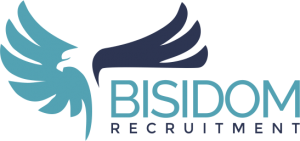3 Reasons Why You Should Be Upfront With Your Recruiter
Many job seekers fail to see the benefits in building a strong relationship with a recruiter. However, a recruiter can be an integral piece in the hiring process when it comes to the hiring manager’s final decision.
There are 3 reasons why you should be upfront with your recruiter throughout the interview process.
1. You will get free coaching.
Let’s face it, recruiters are experts when it comes to interviewing and hiring. If you’ve found a good recruiter, you will have access to a plethora of interviewing advice. Guidance on interview attire, behavior, as well as follow up advice are important tips that can help you land the job.
Knowing when it’s appropriate to ask certain questions throughout the interview process is something that many job seekers struggle with. Your recruiter should know and advise you on the appropriate questions to ask throughout the interview process.
In addition, if the hiring manager has a sweet spot when it comes to a certain skill-set, the recruiter will know and will be able to inform you of this prior to your interview.
Also, do not be hesitant to disclose previous problems in your work history. When you have a previous employment issue from your past, your recruiter will be able to help you properly position this with the client so there are no surprises down the road.
The ways in which a recruiter can help out throughout the interview process are numerous. Who wouldn’t want to take advantage of free interview coaching from an expert in the field?
2. The recruiter often has access to the hidden job market.
Maybe your recruiter doesn’t have an immediate job that fits all your requirements right now. However, that doesn’t mean that you should push the recruiter off and not explain your key desires.
Recruiters quite often have access to job opportunities before they ever hit the job boards. Having a shot at a job that hasn’t even been posted yet is a huge benefit and can put you miles ahead of other talent in your field.
3. Your recruiter can influence the hiring decision.
When it comes down to it, the recruiter actually works for the hiring manager. However, don’t misunderstand what this means for you. If you are a good fit for the position, you definitely want the recruiter on your side.
Hiring managers partner with recruiters because they rely on the recruiter’s assessment when it comes to the right candidate. If your recruiter has your back, she can influence the hiring manager in making a final decision as well as an appropriate offer that can guarantee a signed agreement between you and the hiring manager.
By being upfront with your recruiter in the beginning, she will know how to position your interest and requirements to the hiring manager in order to provide a win-win situation for both you and the hiring manager.
Originally published at http://blog.sparkhire.com/2015/12/06/3-reasons-you-should-be-upfront-with-your-recruiter/





